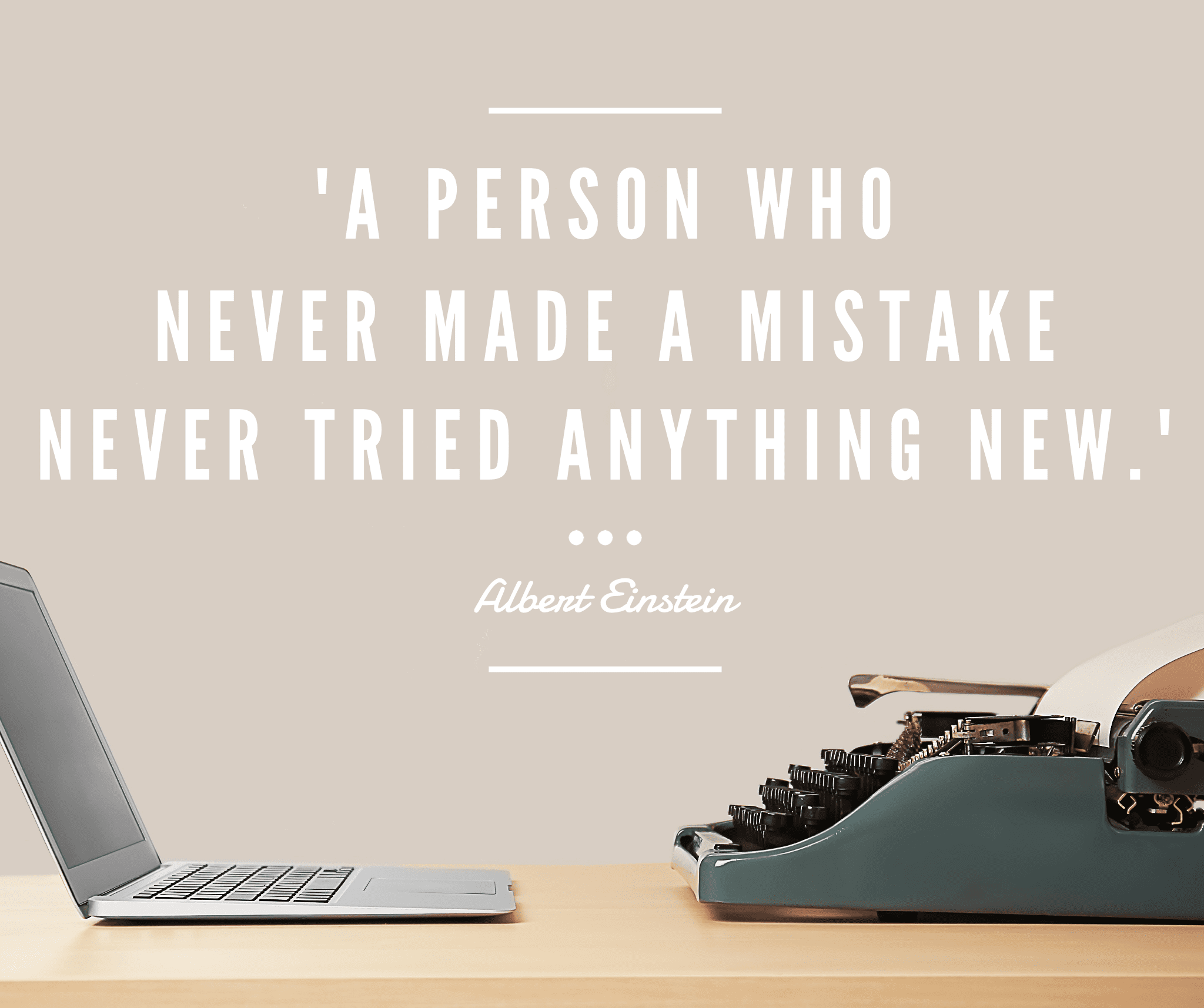
Technology has skyrocketed in the last decade — so much so, that some marketing agencies are even looking into hiring on CAIO’s, or Chief Artificial Intelligence Officers. Yes, you read that correctly.
Concepts like artificial intelligence and machine learning are not as abstract as they once were. They’re now flowing into various aspects of the advertising world, forcing marketing agencies to keep up with the technology and successfully direct it into their business.
What Is Artificial Intelligence?
The idea of artificial intelligence (AI) is a theory and development of computer systems that are able to perform tasks that would usually require human intelligence and interaction. Some of which include visual perception, speech recognition, decision-making and language translation.
Another way to define artificial intelligence is by using the word “crazy.” It’s something that most people can’t even comprehend at this point in time.
The Next Big Title
It’s beneficial for marketing agencies to incorporate this technology because developments such as the AI dashboard allow for the agencies to know when there are unusual patterns in their metrics. In addition, some agencies are looking into how to use AI to improve efficiency of their internal processes.
Understandably, some agencies are hesitant to let a robot-like creature take over the reigns, while some agencies are more confident. For instance, one brave independent media agency in New York just hired on a new executive director of cognitive solutions, who will be in charge the agency’s work surrounding the AI-like department.
Don’t Get Left Behind
Though AI is still in it’s semi-early stages and there are currently not many, if any, positions strictly dedicated to its growing development, it will one day in the near future be worth investing in.
For marketing agencies, the creation of artificial intelligence basically means life or death. If they shy away now while the concept is still new, there will be an evolutionary divide. This means that those who didn’t jump on the AI train are left abandoned at the station, not moving forward.
Sources:
http://adage.com/article/agency-news/chief-ai-officer-big-title-media-agencies/309667/

Written by Ascari Pena
Microsoft is beginning to cut back their sales and marketing teams, which allows us to ponder as technology becomes integrated into our daily lives. In 2014, nearly 17 million workers were employed in the high-tech sector. While this number continues to skyrocket, many other sectors are either being eliminated or restructured.
As an advertising agency in Utah, we are seeing an incredible boom here in the Silicon Slopes with jobs and economic growth.
Advantages of the Tech Boom
As technologies such as self-driving cars, virtual reality and fully automated online retailers such as Amazon, there is no stop to what technology companies are going to innovate. Technology also brings alignment to the consumer, allowing them to have a much more informed purchase cycle.
For example, before smart phones, the average consumer would visit around ten car dealerships to “kick the tires” and see pricing options. Now, the average buyers visit around two dealerships because of the help of online information and resources.Technology also allows the consumer to be smarter with each dollar they spend.
A perfect example is ride-share programs. The taxi business has never been centered around the customer experience, with rude drivers and ridiculous pricing to make for a pretty unpleasant experience. From here, comes Lyft and Uber, offering a much more customer friendly experience at a much better price. Now, taxis are struggling to survive — for better or worse.
Disadvantages of The Tech Boom
While technology is great, it has come with unfavorable conditions for some. Billions of dollars are being lost in traditional mediums such as television and print advertising. With everyone ditching anything even remotely related to the word ‘traditional’, businesses are folding. Traditional television advertising, shopping malls, travel agencies, newspapers and book stores are all having to change their models drastically to keep up with the demands of a 2017 consumer.
At Fusion 360 Agency, we understand where the eyeballs are at. We know that traditional models are dying and we are the pros of digital sustenance — from content marketing to SEO. Our combination of services have allowed us to build something great, and we’re happy to see innovation as a result.

If you accessed social media at all during this past Presidential election, then your account was probably plastered with all sorts of political agendas and opinions. You know Donald Trump is constantly tweeting and everyone is either agreeing or disagreeing with what he is doing. Social media has significantly influenced the field of politics.
There is always news — always. Before the Internet, people had to wait for the news that night or the newspaper the next day to get the latest information. Now, you have news wherever and whenever you want it. Marketing agencies around the world work to keep the information flowing along with these sources of news.
The problem with that is occasional misinformation. When people check Facebook and Twitter for the latest trends, the news they pull form there isn’t always accurate.
Increased Interaction
Political polls are important and you can often find poll results on the same day. Thanks to social media, these polls have had an increased presence. Social media platforms can now report results of polls, while also allowing you to participate in polls you or your friends create.
In addition, social media now allows user to have direct interaction with candidates and elected officials. Before the age of the Internet, it was difficult to interact, let alone meet with a political official. Now, there are events that are streamed live across social media platforms where people can interact with candidates and politicians.
The Impact
Social media is still rather new. We are just seeing the beginning impacts on society. It will become more and more influential in the political realm. It will be interesting to see how it will continue to influence politics.
Social media is not only having an effect on politics, but many other things as well. Marketing agencies are no longer just doing traditional marketing. Now, they are targeting website design, SEO and more online marketing rather than traditional media outlets such as television.
Sources:
https://blog.sysomos.com/2016/10/05/social-media-affects-politics/

Written by Ascari Pena
Famous YouTube star and entrepreneur Gary Vaynerchuk of VaynerMedia states, “Speed is four billion times more important that perfection.” As technology has made our world become increasingly fast and efficient, there is room for debate on what is more important for advertising agencies. Speed or perfection?
As an advertising agency, clients want both. They want their creative to be done fast and perfectly. Unfortunately, this cannot be accomplished in almost any situation.
Speed
Being fast on a day-to-day basis is extremely important. A wise man once said “If you ain’t first, you’re last.” Thank you Talladega Nights and Ricky Bobby for the insightful knowledge. It’s extremely applicable in today’s marketplace where being first is important on many levels.
A perfect example is the New York Times. The famous newspaper is looking to eliminate copywriters to replace them with more journalists. In protest, people stood on the street with typo ridden signs to show that in the news industry, ethics and perfection are more important than speed.
Competition for business is at an all time high, and clients are demanding high speed from their agencies. With the amount of tools available for content marketing and web development, there is no reason for agencies to spend weeks on requests from clients.
Perfection
If you make a mistake large enough, it could be the very next viral meme online. With the speed that the marketplace is demanding, mistakes will be made. Whether clients are more or less forgiving, there is a fine line to be drawn for excusable and inexcusable mistakes. Quality control of content and production is essential to producing a product that has value to the marketplace.
The Balance
While both qualities are important, value and emphasis needs to be place on one or the other. The high-speed market will leave those trying to perfect every little detail in the dust. While making sure all of our work here at Fusion 360 is perfected, speed is the name of the game.

If you’re wondering how a marketing agency knows what’s going on in the news and portrays that news to you then wonder no more. An advertising agency is about doing just that: advertising. Here’s how they keep you in the know on what’s going on in your town and the world.
Clients and Communication
Marketing agencies typically do work for one or more clients. With all these clients, it is important to watch the news and stay updated on current events that could relate to one of their clients specifically. Here at Fusion 360, we have all eyes on the news so we can use events happening now and create awesome content that is relevant to our audience at that moment.
We are lucky in that we’re not only professionals at advertising why our clients are amazing, but we’re also experts at relaying that applicable information about the news and relating it back to them to make them stand out among the rest.
The Agency
All marketing firms have clients, yes, but they are also responsible for taking care of their own content and social media channels as well. Just one quick visit to Fusion 360’s social channels or blog and you will most likely not only realize how fun Fusion 360 is, but also learn something new about what has happened in Utah or the world and how advertising agencies play a role.
Blogs and Social
What many people don’t realize is that almost every big company or business that has a website also has a blog page. These blogs are not just there to add professionalism to the look of the website, but for the consumers to read and enjoy.
If you’re reading this than you obviously know about Fusion 360’s blog, which is fortunate for you because Fusion 360’s blog is stuffed full with current events and facts that you might have missed out on. Blogs are the perfect way to get questions answered that you probably didn’t even know you had. It’s as if they read your mind before the question has even come into your head. It’s exciting.
Thanks to Fusion 360 and other marketing companies, you’ll be able to show off your dazzling wit to all your close friends and they’ll envy you.
The prominence of social media has skyrocketed over the last decade. This has caused advertising agencies all over the world to step up their game and get on board the social media train.
In order to stretch your agencies advertising reach all over the world, there has to be enough social platforms to support all the hype. Read below to find out all you need to know about social media so you can be a posting pro .
.
 You know who they are: the people at your office that will absolutely die if they don’t have the newest Apple product. Your parents who say they’ll always buy a Ford because its an American car. Your friends who hate Marvel movies but love DC movies.Your friends, family and co-workers (and more than likely you as well) are experience brand loyalty.
You know who they are: the people at your office that will absolutely die if they don’t have the newest Apple product. Your parents who say they’ll always buy a Ford because its an American car. Your friends who hate Marvel movies but love DC movies.Your friends, family and co-workers (and more than likely you as well) are experience brand loyalty.
Brand loyalty is when a consumer will continually buy a particular service or product from one particular company because they believe it is the best fit for them. Great marketing agencies will focus on brand messaging for its clients so that those businesses can gain an audience that sticks around for the foreseeable future.

Written by Ascari Pena
If you look back fifteen years ago, we would have never imagined we would be watching TV the way we watch TV today. Do people really “watch TV’ anymore? Television is no longer checking the TV guide, figuring out what time the new episode of your favorite show is on and sitting down to watch it — those days are long gone.
Not every TV show is watched on traditional televisions anymore. Everyone wants to watch their shows when it’s convenient form them and without commercials of course. Now, advertising agencies may not advertise nearly as much on TV, but have many other opportunities to advertise.
Mobile
Phones have changed the way we watch TV. Families still gather around and watch TV for some events, but this is only sometimes. Today, people are streaming Netflix and Hulu. Seventy-two percent of viewers use a mobile device to view video and 42 percent sit outside of their home.
Content Providers
Content providers are not Direct TV, Comcast or cable subscription. Now, there are other content providers that advertising agencies don’t have as much opportunity to advertise on. Apple TV provides TV shows, news, movies and sports; you can get thousands of videos for free on Amazon Prime — there is also Netflix and Hulu. Some of these providers force you to watch commercials, unless you pay for commercial-free viewing while others don’t even bother.
Scheduling
For those people who still want to watch some sort of live-TV, consumers have the opportunity to record and watch shows at their own convenience. This way, people can record shows from live TV and watch whenever they want. The best part is you have the ability to skip through commercials, too.
Multi-tasking
Everyone multitasks now; no one really sits down and watches TV. They are usually reading e-mails, viewing social media posts or browsing the web.
The way TV is being watched has drastically changed. People just don’t “watch TV” using their TVs anymore. This change is forcing advertising agencies to adapt and become rather creative to be able to reach consumers. Advertising agencies are accepting change with open arms.
Resources:
https://extremereach.com/blog/the-continuing-evolution-of-tv-viewing-habits/
http://www.marketingprofs.com/charts/2016/31149/how-television-and-video-viewing-habits-are-changing

Written by Ascari Pena
In 2017, we are seeing the mass emergence of many different technological platforms such as Virtual Reality (VR), self-driving cars and dominance of non-traditional television platforms such as Netflix and Hulu. With this technology changing how we interact with media, products will emerge and others will fall. Innovation is the name of the game.
Our media consumptions habits are changing daily and large tech companies such as Facebook and Google are having larger pressures from large businesses to deliver higher quality ad-serving platforms. On the opposite side, advertising and marketing agencies are competing for business and trying to drive growth of their clients through SEO and content marketing.
To further prove the shift to digital platforms, digital ad spending overtook TV for the first time ever in 2016; experts say this is due to the Summer Olympics and the Presidential election. Globally, TV is still leading in ad spending. While many in the advertising arena would like to debate which one is more effective, the shift to digital is real and advertisers need to recognize this.
Apps and Ads
Large companies with billions of dollars in an advertising budget such as McDonald’s are now turning straight to social platforms such as Snapchat to assist in the marketing of their brand to allure teens to apply for jobs.
While this is becoming a trend for major corporations, these prominent social platforms are now having to provide scalable advertising analytics for their dollars spent. Scaling the analytics for advertising campaigns has been a thorn in the hide of Facebook, Google, Snapchat and Twitter.
With the freedom of the internet also comes the one percent that ruin it for the rest of us. In March 2017, major brands such as Honda pulled their advertising from YouTube as their ads were appearing on extremist websites and other content they deemed to be inappropriate to their brand.
While these platforms have nearly all the attention, there is demand from users and advertisers to create systems to filter out hate speech and the new trend of ‘fake news’ through development of algorithms.
Traditional Advertisers
While we are consuming media at an all time high, traditional media spenders need to think long and hard about where they are placing their advertising dollars. Unlike previous generations, Millennials and Generation Z’s have no problem tuning out your annoying 30-second spot on TV.
While traditional television advertising works to reach a broad audience, it does not have the granular analytics that digital platforms do. If an advertising agency is to spend on traditional mediums, the creative must be engaging and provide value to the viewer, or they will be tuned out faster than the latest Nickelback album.
When evaluating where to spend your ad dollars, auditing your ad spend and re-strategizing with an advertising agency like Fusion 360 in Salt Lake City, Utah may be your best option.



